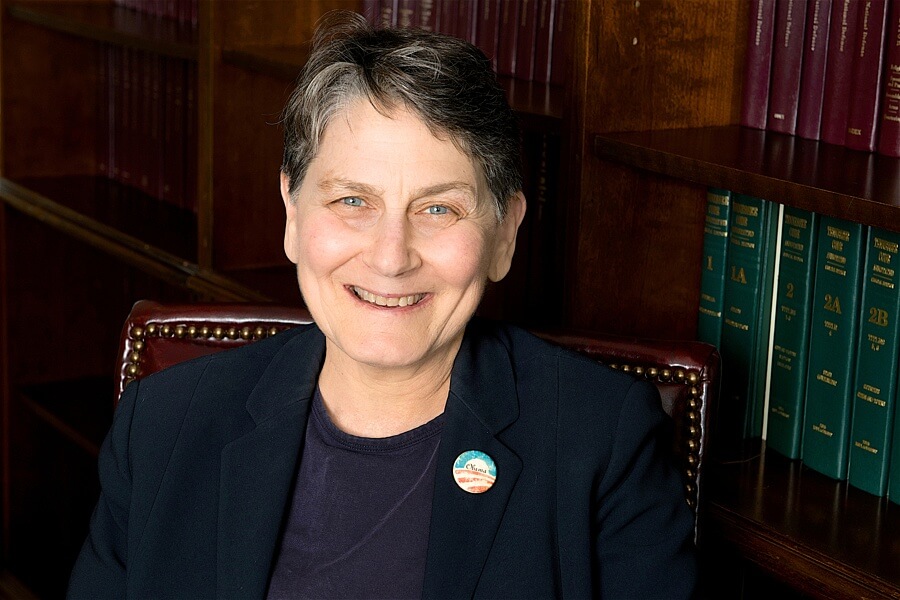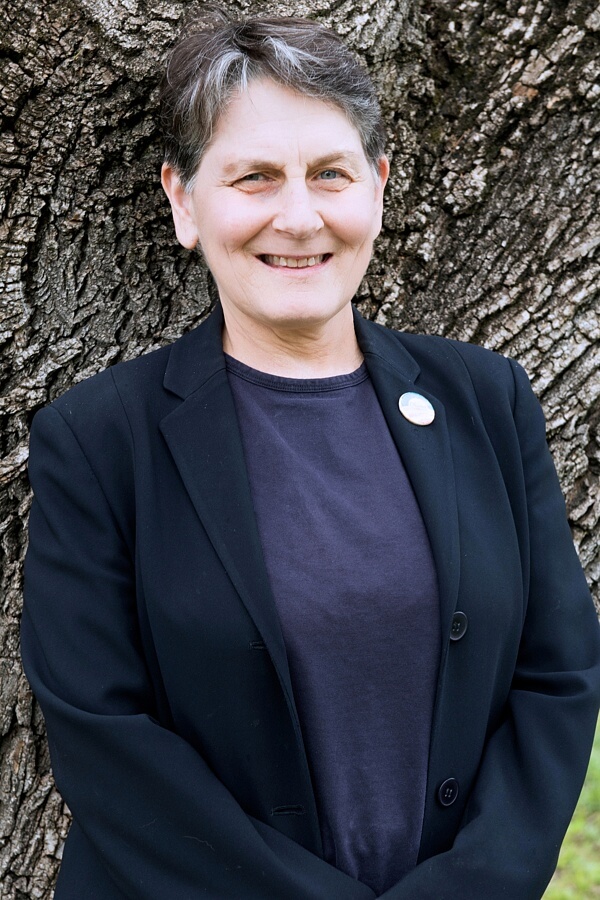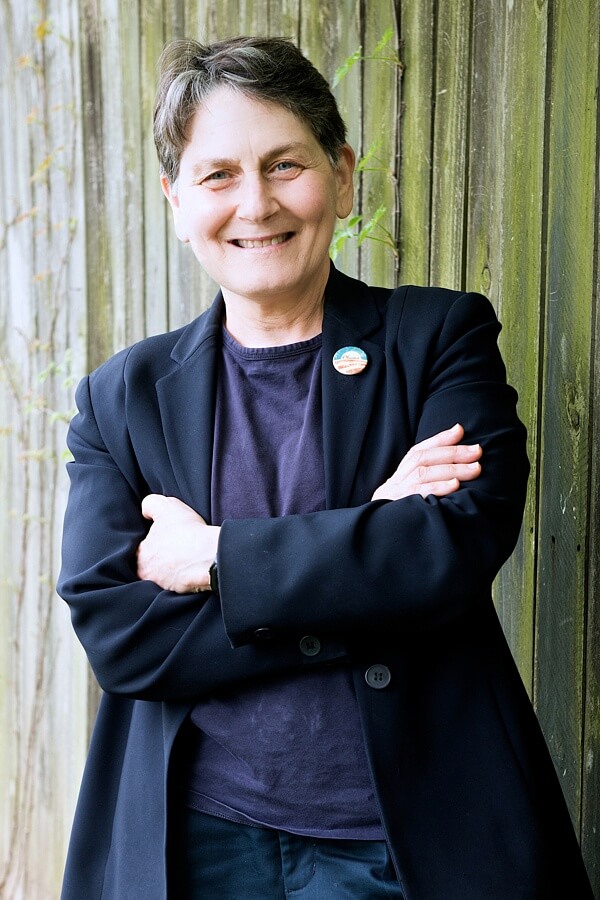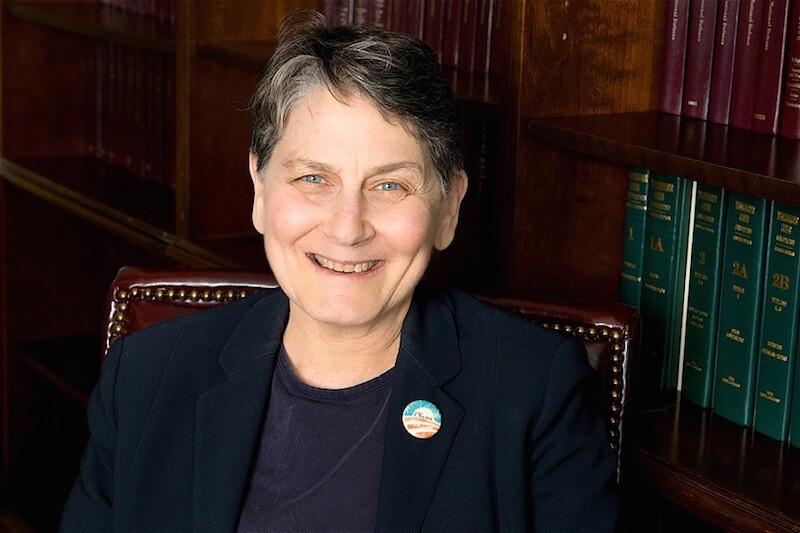As one who intimately feels the plight of the under-served, Abby Rubenfeld likes to take on tough issues. From representing a client who has been wrongly accused to working to legalize same sex marriages, Abby’s drive to do the right thing resulted in her being named Nashvillian of the Year by the Nashville Scene in 2015 along with fellow attorney Bill Harbison.
She has been practicing law since 1979, and the breadth of her legal, academic and political experience allows her to understand her clients’ needs and win cases on their behalves. Her list of accomplishments are notable, and there will undoubtedly be more. It is with great pleasure that we introduce you to Abby Rubenfeld, today’s FACE of Nashville.

You were elected the first ever female class president at Princeton, a feat that was noted in The New York Times. Since then, do you think women have made significant advances as equals to their male counterparts?
Yes, I was the first female class president in the then 228-year history of Princeton University, a huge honor, especially since I was barely 18 years old at the time. Since those days, the numbers of women in positions of power, including in the government, have certainly increased, but “equal” to our male counterparts? Just look at the minuscule numbers of women senators or CEO’s of Fortune 500 businesses or governors or managing editors — or even just look at the disgraceful continued pay gap between men and women or how the 2016 presidential election was covered by the media. Women are hardly treated as “equals” in jobs, elections, media treatment — you name it. Yes, we have made lots of progress, but we are nowhere near equal and young women — as well as us more mature women — today need to understand that and change it.
Your lawsuit in 2013, Tanco v. Haslam, asking Tennessee to recognize the marriages of those same sex couples who had legally wed in other states and then moved here, led to Tennessee’s inclusion in the Supreme Court case that legalized gay marriages across the country. When you heard the news, what was your reaction? Can you tell our readers your role in this monumental decision?
I am very proud to have created our Tennessee case challenging the denial of marriage equality to same sex couples by setting up an amazing team of private Tennessee attorneys and a national LGBT legal organization to fight that injustice. The United States Supreme Court has long held that our wonderful United States Constitution includes a “fundamental” right to marry — meaning one of the most basic, most protected rights that a person can have. To me and many others, the exclusion of same sex couples from that “fundamental right” was wrong, without reasonable basis and discriminatory, so I worked very hard to put together a team to challenge it and correct that wrong. Our case was one of four that went to the Sixth Circuit Court of Appeals together and then to the Supreme Court. While it was not fun losing in the Sixth Circuit (losing never is), that loss meant that the likelihood of the Supreme Court hearing our case or one of those four cases increased dramatically, which was terribly exciting. All lawyers probably dream of having a major civil rights case before the United States Supreme Court; certainly I did. None of us involved in those four cases knew if only one would be accepted or none at all, so when all four were accepted together, we were all ecstatic. After starting the case, my role was as one of our amazing team, and I was privileged and honored to sit second chair at the Supreme Court oral argument. I cannot even describe how proud I feel to have played a role in making history and in making our constitutional democracy work the way it is supposed to work, protecting all our citizens.

You have spent your career working to right the wrongs that you see in society from seeing country clubs not accept Jewish members, to the LGBT community being marginalized. The drive to help others is obviously in your DNA. Where did that come from?
Yes, I was raised to have a deep sense of justice and to treat all people equally and with respect, of challenging discrimination and injustice. My family moved to Florida in 1961 when I was 7, right when integration was finally starting in the South. I went to segregated schools until I was in high school. I saw injustice, and I saw my parents react to it. They taught me that. Growing up Jewish, I also experienced discrimination and learned how painful that can be. I believe deeply that we live in the greatest country ever, and the many advantages and blessings this country provides should be equally available to all. No child should grow up without opportunity and options, but too many still do — limited and restricted simply because of their race or national origin or religion or financial ability or any number of other factors that are completely unrelated to their abilities. That is wrong, and I have dedicated my life to change that — all children should have the same opportunities that my children have.
I am a long-time fan of your brother, who is better known as “Pee Wee Herman.” What was it like being his younger sister?
I am very proud of my brother for his accomplishments and for how much joy and laughter he has brought to so many people. He shares our family sense of justice, you know, and he serves that same value taught to us by our parents, although in a different way. He does Make a Wish visits, and he too speaks out on racism and other injustices. He led the effort to integrate his high school reunions, and he made sure that his television program was representative of all people, with incredible diversity and respect for all. He is a tremendous big brother and son, taking care of our mom on a daily basis, despite his own busy schedule. Of course, he has his moments when, as a big brother, he annoys the hell out of me, but that is part of being a sibling, right? He is an amazing man, not just for his sense of humor and how well he entertains so many people, but also as someone who is true to his principles and values even when they are not shared by Hollywood powers.
What is a valuable piece of advice you have been given?
I learned from my parents to be willing to speak up if I think something is wrong or unjust. And I appreciate that I am more able to do that than some other people because I grew up white and with some privilege. I believe that those of us who were blessed with economic advantage and cultural deference have an obligation to use that privilege and advantage to do good, no matter how hokey that sounds. My parents taught me that you are never too big, too good, too far removed, too smart or too anything to help your fellow Americans and all other people.

Do you have a mentor who has made a difference in your life?
I have been fortunate to have had many people who took an interest in and helped me along the way. One person in particular who stands out is Nan Hunter, a brilliant attorney and law professor, who was at the ACLU National Reproductive Rights Project when I went to NYC to be Legal Director of Lambda Legal Defense and Education Fund in 1983. She took me under her wing and helped me learn what it means to have the honor of working for a national group and how to do national civil rights advocacy the right way and for the right reasons. She also helped me survive when I moved temporarily from Nashville to NYC, not an easy thing to do …
What books are on your bedside table?
I read non-fiction (not surprising, I suppose). I am currently reading No Ordinary Time: Franklin and Eleanor Roosevelt: the home front during World War II, and I have waiting behind it Sisters in Law: How Sandra Day O’Connor and Ruth Bader Ginsburg Went to the Supreme Court and Changed the World and O Jerusalem.
Do you have a favorite vacation spot?
What is a vacation?
Is there something our readers would be surprised to find out about you?
Well, they might be surprised to know that I am 5 feet tall. People always tell me they thought I was taller. And perhaps more surprising than that is that I lettered in basketball at Princeton. I am very proud to be the shortest person, male or female, to have lettered in basketball in Princeton history, a record that is unlikely to ever be broken. Needless to say, I went to Princeton when it was first coed, and there were not a lot of women, but hey, I lettered in basketball, and I still wear my P sweater very proudly.
Do you have any irrational fears?
I don’t consider this “irrational,” although I concede that my level of fear is over the top: I am terrified of sharks. In all kinds of water — even fresh. My dad used to fish for sharks off our dock in Florida, and both my brother and I developed an intense fear of them.
What are three things you can’t live without, excluding faith, family and friends?
The Titans, my contacts/glasses, my work. In that order.
Thank you to Abby for answering our questions, and a special thanks to Ashley Hylbert for today’s gorgeous photos!
********
Jaime Nephew was just 39 years old when she suffered a stroke. In honor of American Stroke Month, we’re thrilled to feature Jaime as this month’s FACE of TriStar. Read her inspiring story of recovery and find out what advice she offers for anyone who’s reading. Click here!




















